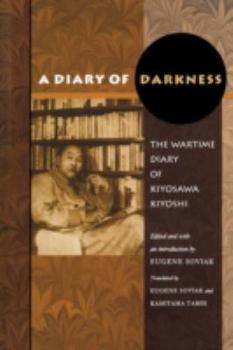A Diary of Darkness: The Wartime Diary of Kiyosawa Kiyoshi
Select Format
Select Condition 
Book Overview
A Diary of Darkness is one of the most important and compelling documents of wartime Japan. Between 1942 and 1945, the liberal journalist Kiyosawa Kiyoshi (1890-1945) kept at great personal risk a diary of his often subversive social and political observations and his personal struggles. The diary caused a sensation when it was published in Japan in 1948 and is today regarded as a classic. This is the first time it has appeared in English.
Kiyosawa was an American-educated commentator on politics and foreign affairs who became increasingly isolated in Japan as militant nationalists rose to power. He began the diary as notes for a history of the war, but it soon became an "inadvertent autobiography" and a refuge for the bitter criticism of Japanese authoritarianism that he had to repress publicly. It chronicles growing bureaucratic control over everything from the press to people's clothing. Kiyosawa pours scorn on such leaders as Premiers Tojo and Koiso. He laments the rise of hysterical propaganda and relates his own and his friends' struggles to avoid arrest. He writes in gripping detail about increasing poverty, crime, and disorder. He records the sentiments of the local barber as faithfully as those of senior politicians. And all the while he traces the gradual disintegration of Japan's war effort and the looming certainty of defeat.A Diary of Darkness is a perceptive and courageous account of wartime Japan and a revealing record of the devastation wrought by total war.
Format:Paperback
Language:English
ISBN:0691140308
ISBN13:9780691140308
Release Date:September 2008
Publisher:Princeton University Press
Length:416 Pages
Weight:1.35 lbs.
Dimensions:0.8" x 6.1" x 9.2"













